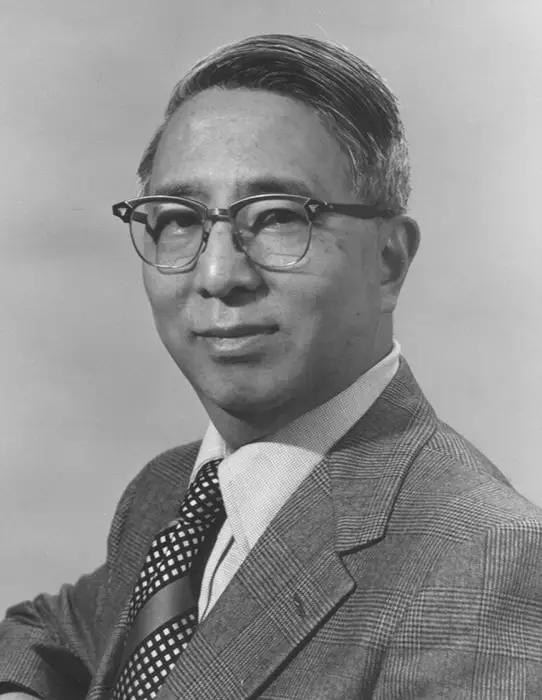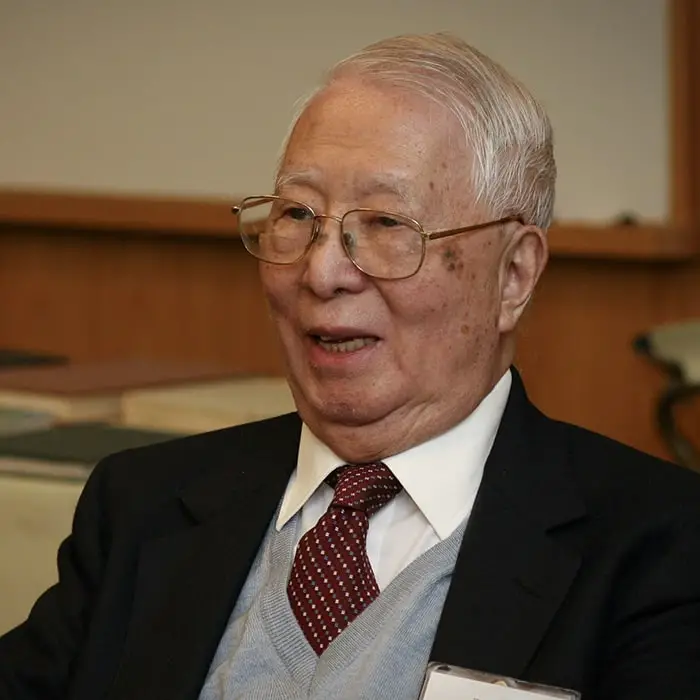Remembering Tung Au
Media Inquiries
Tung Au, emeritus professor in the Carnegie Mellon Civil and Environmental Engineering(opens in new window) (CEE) and Engineering and Public Policy(opens in new window) Departments, passed away on May 31, 2022, at 98 years old. Au served on the faculty with great distinction from 1957 until retiring in 1992.
In his 35 years with CEE, Dr. Au touched the lives of many CEE students, staff members and fellow instructors. The CEE Tung Au Lab in Porter Hall, a flexible educational facility and the central meeting space for CEE events, was dedicated in honor of Au in October 1988. At the opening of the lab, former CEE Head Paul Christiano said, "Whenever I meet Civil Engineering alumni who graduated in the last 30 years, invariably they ask about Professor Au and request that I convey their warmest regards to him. Often they relate a personal story about him: how he helped them to adjust to the rigors of college; or how he helped them to acquire a scholarship or to find their first job; or how he provided fatherly advice when they needed it."
"I was among the students who benefitted from Dr. Au's warmth and counsel," said Dave Dzombak(opens in new window), CEE department head. "When I entered the department as an undergraduate transfer student, Dr. Au was the first faculty member I met and he provided helpful, reassuring guidance. I learned about the power of his intellect directly as a student in a course he taught, and even more so when I joined the CEE faculty a decade later and got to know him as a colleague. Among his amazing abilities was that he could remember well every student that he ever advised."
Au was an internationally recognized researcher and engineering educator. As a CEE faculty member, Au taught and conducted research across a spectrum of topics in civil engineering, with deep expertise in applied mechanics, structural engineering, systems analysis and design, and construction project management. Au was the author or co-author of seven books, including "Elementary Structural Mechanics" (1963), "Introduction to Systems Engineering: Deterministic Models" (with Thomas Stelson, 1969), "Fundamentals of Systems Engineering: Probabilistic Models" (with Richard Shane and Lester Hoel, 1972), "Engineering Economics for Capital Investment Analysis" (with Thomas Au, 1983, 1991), "Structural Analysis" (with Paul Christiano, 1987), "Project Management for Construction" (with Chris Hendrickson, 1989), and "Fundamentals of Structural Analysis" (with Paul Christiano, 1992). Au received numerous honors throughout his career, including being recognized as an Honorary (Distinguished) Member of the American Society of Civil Engineers in 1991.
Au made many contributions to Carnegie Mellon. He served as the acting head of Civil Engineering for Carnegie Mellon in 1970-71 and again in 1985-86; chaired various committees for the College of Engineering(opens in new window) and the university; and served as chair of the Faculty Senate in 1981-82.
Au received his bachelor's degree in civil engineering from St. John's University in China in 1943. Following graduation, he was involved with designing a new airfield in China for the American Air Force Group, better known as the "Flying Tigers." After World War II Au immigrated to the U.S. and earned his master's and doctoral degrees in civil engineering from the University of Illinois in 1948 and 1951, respectively. He worked as a structural engineer in consulting firms in Detroit, Michigan for several years before joining the Civil Engineering faculty at the Carnegie Institute of Technology (now Carnegie Mellon) in 1957.
"I was very fortunate to have Dr. Au as one of my first CEE professors," said James H. Garrett Jr.(opens in new window), provost and Thomas Lord Professor of Civil and Environmental Engineering. "He was a dedicated and multidisciplinary educator, a caring advisor, a prolific scholar and a person who truly enjoyed being a professor at Carnegie Mellon. He was also a very nice person."
The CEE Department extends its condolences to Au's friends and family. We fondly remember his time with Carnegie Mellon and know that he will be missed by many.
Tung Au

